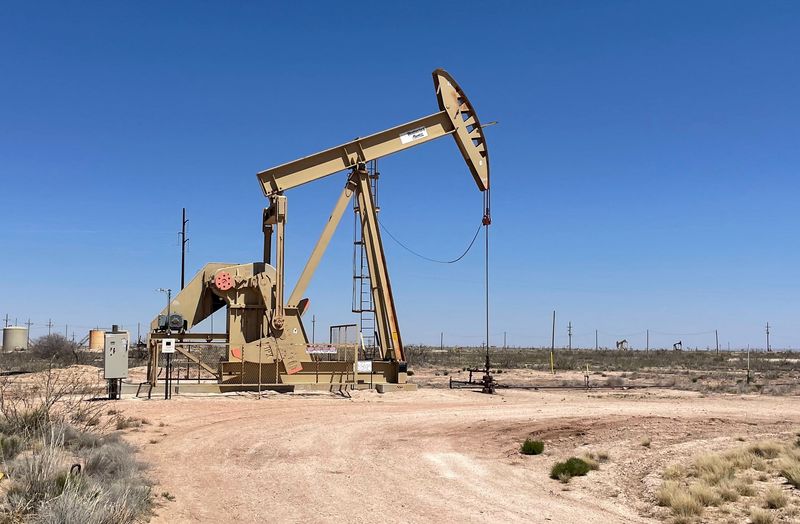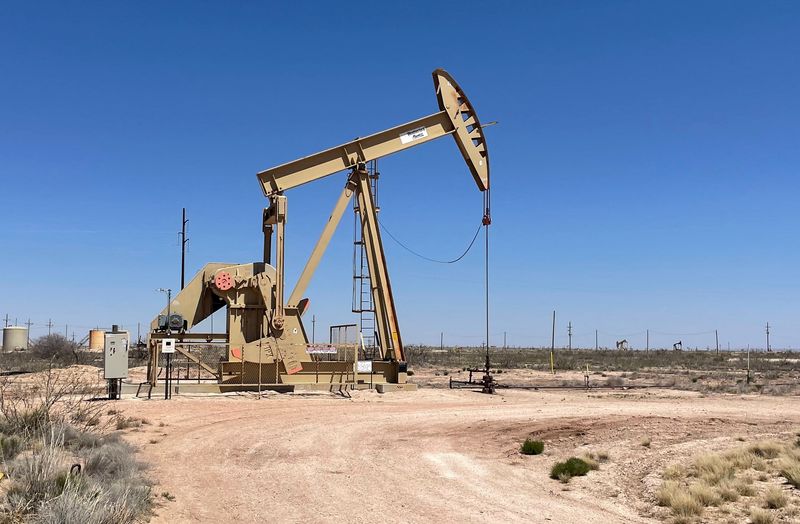
By Shariq Khan
NEW YORK (Reuters) -Oil prices fell more than 2% on Friday as traders grew less fearful of prolonged supply disruptions from a hurricane in the U.S. Gulf of Mexico, while China’s latest economic-stimulus packages failed to impress some oil traders.
U.S. West Texas Intermediate futures led the decline, down 2.8%, or $2.01, at 70.35 per barrel by 1:32 p.m. ET (1832 GMT). Global benchmark Brent crude futures fell 2.3%, or $1.77, to $73.86 per barrel.
Energy producers shut in more than 22% of oil output in the U.S. Gulf of Mexico by Thursday as a precautionary measure to brace against Hurricane Rafael, helping lift oil prices by more than 1% in the prior session.
However, the latest forecasts on Rafael’s trajectory and intensity reduced the risk to oil production from the U.S. Gulf.
“Threats of supply outages due to Hurricane Rafael are subsiding as the storms shifts to circling in the center of the Gulf of Mexico for the next 5 days or so,” Alex Hodes, analyst at brokerage firm StoneX told clients in a note.
The storm, which left a trail of destruction in Cuba this week, had weakened to a Category 2 hurricane on Friday, according to the U.S. National Hurricane Center’s latest advisory.
Meanwhile, top oil importer China’s latest round of fiscal support disappointed oil investors. Chinese authorities announced a package easing debt-repayment strains for local governments, but those measures do little to directly target demand, UBS analyst Giovanni Staunovo said.
“I guess some market participants were hoping for more stimulus measures coming from China,” he said. “Hence, the disappointment weighing on prices earlier today.”
Deflationary pressures on the Chinese economy have been a heavy drag on oil prices this year, with customs data showing a sixth consecutive month of year-over-year declines in the country’s crude oil imports for October.

Oil prices drew some support from expectations of tighter sanctions on Iran and Venezuela by U.S. President-elect Donald Trump, which could cut oil supply to global markets. The U.S. Federal Reserve’s decision to cut interest rates by a quarter percentage point on Thursday also helped keep both benchmarks on course for about 1% week-over-week gains, despite Friday’s slump.
“In the short-term, oil prices might rise if the new President Trump is quick on the draw with oil sanctions,” said PVM analyst John Evans.
This post is originally published on INVESTING.


